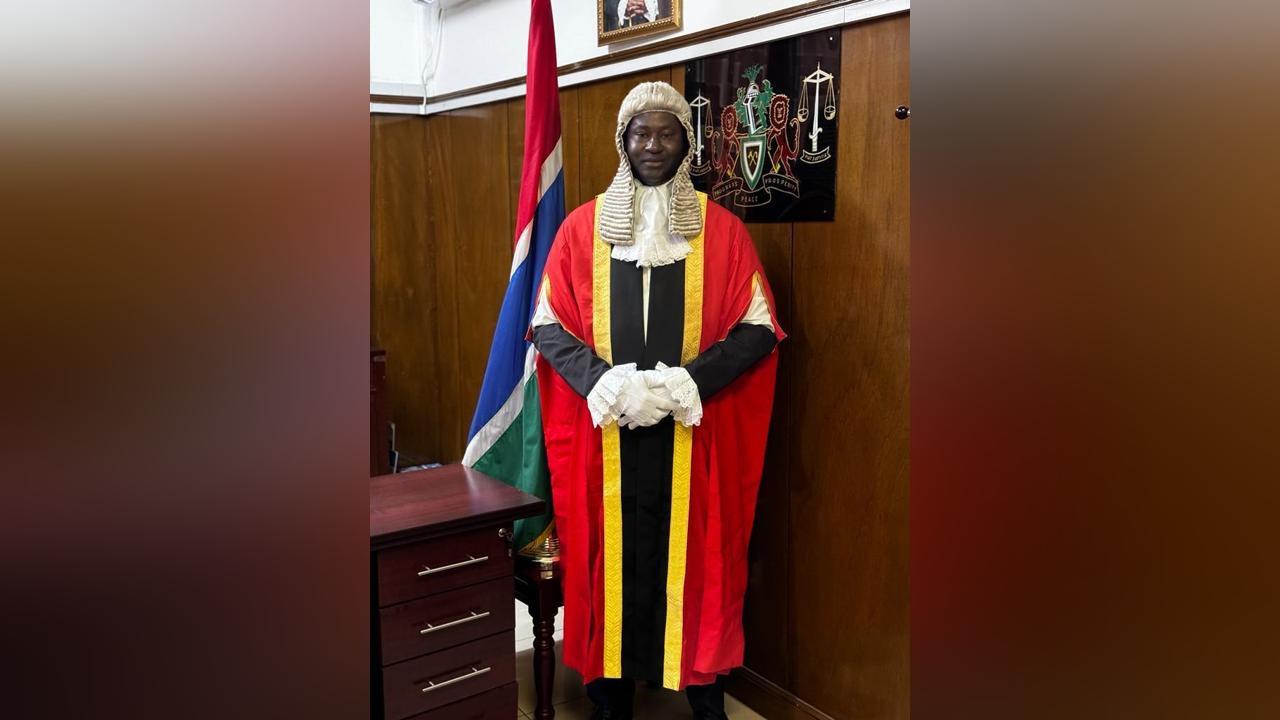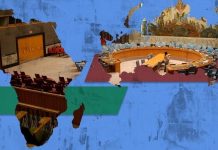Africa-Press – Gambia. The High Court of The Gambia has granted bail to Lamin Makalo and Ebrima Jassey, following a constitutional challenge against their continued detention and a request for the transfer of their case from Magistrate Baldeh. Justice Ebrima Jaiteh, presiding over the matter, ruled that the accused were entitled to bail under the law, but declined to reassign the case to a different magistrate.
Makalo and Jassey were initially arrested and charged with conspiracy and willful damage to property. Though released on bail by Magistrate Ensa Sarr on January 29, 2025, the two men were re-arrested on March 10 without being informed of the reason. They were subsequently remanded into custody by Magistrate Baldeh, who denied them bail on the grounds of a second charge.
Represented by Senior Counsel Lamin Jobarteh, the defendants brought the matter before the High Court, arguing that the denial of bail constituted a violation of their constitutional rights. They also alleged potential bias on the part of Magistrate Baldeh, citing remarks made in court and actions taken without their consent, including the ordering of a medical examination for one of the defendants.
In his ruling, Justice Jaiteh identified two central issues: the applicants’ entitlement to bail pending trial, and the merit of their request to transfer the case from Magistrate Baldeh.
On the issue of bail, Justice Jaiteh affirmed that the charges—conspiracy to commit a misdemeanor and willful damage to property—are bailable offenses under Section 99(1) of the Criminal Procedure Code. He emphasized that neither offense carries a penalty of death or life imprisonment, and that both defendants remain presumed innocent under Section 24(3)(a) of the 1997 Constitution.
“Bail should not be used as a tool for punishment or to preemptively incarcerate an accused person before trial,” Justice Jaiteh declared. He further noted that the state had not demonstrated any compelling reason to deny bail, such as risk of flight, witness interference, or likelihood of reoffending.
Each defendant was granted bail in the sum of One Million Dalasis (D1,000,000), with conditions including the provision of a Gambian surety backed by a title deed of equal value, verified by a certified valuer and submitted to the Principal Registrar of the High Court. The accused are also required to attend all court proceedings, remain within jurisdiction unless granted leave by the court, and refrain from interfering with the complainants’ property in Madiana Village.
Justice Jaiteh, however, rejected the request to transfer the case from Magistrate Baldeh to another magistrate. He emphasized that while judicial officers are required to uphold impartiality, the remarks attributed to Magistrate Baldeh—though arguably indiscreet—did not amount to bias or suggest a pre-judgment of guilt that would justify reassignment.
Justice Jaiteh further found no evidence that the applicants’ rights had been violated in a manner that would compromise the fairness of the trial. He underscored that judicial comments, unless clearly unreasonable or in direct breach of the law, do not provide sufficient grounds for transferring a case. He cautioned that such applications should not serve as a vehicle for “forum-shopping” to secure a more favorable judge.
Justice Jaiteh also dismissed objections raised by State Counsel M. Singhateh regarding the affidavits supporting the bail application, particularly the claim that affidavits deposed by counsel violate evidentiary rules. He found the affidavits admissible, noting that affidavits can be sworn by counsel if based on matters within their knowledge or conduct of the case.
The ruling marks a significant affirmation of the constitutional guarantee to bail, reinforcing the principle that pretrial detention must be justified by concrete legal grounds. However, the Court’s refusal to transfer the case underscores its commitment to judicial stability and the principle that criticism alone does not warrant reassignment of a judicial officer.
For More News And Analysis About Gambia Follow Africa-Press






